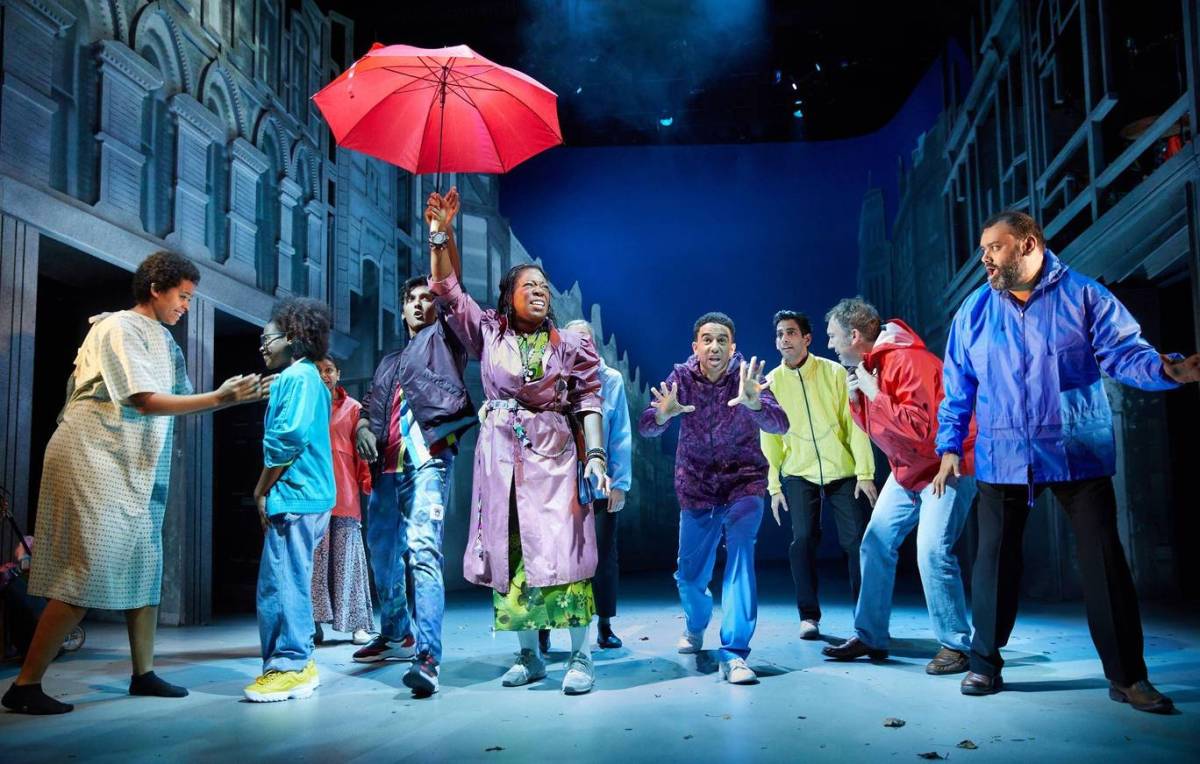Romeo and Juliet is a tale as old as time; it’s been performed countless different ways over the years, making it extremely rare to produce a new meaning each time you watch it.
Gender-bent, glam-rock Romea and Julian, directed by Laura Kressly and presented by Purple Ostrich Productions, was one of those rare times. With bright 80’s jackets and glitter smeared on each actors’ face, we’re thrown into a glam, Bowie-esque era. We’re immediately introduced to a female Romeo (Romea) played by Isabelle Schuler. Love-sick Romea, pining after Rosaline is both endearing and relatable, and it’s refreshing to see an instant openness to her bisexual nature.
The neon 80’s theme is continued as audience members are handed glow sticks as invites to the Capulet ball. Teamed with the glittery faces, I expect the ball to be some sort of rave, however, it doesn’t live up to that expectation – a missed opportunity, perhaps. However, the meeting of strong-willed Romea and the meek and reserved Julian (Jamal Franklin) is tender and fuelled with the right amount of teenage drama.
Seeing these two dynamics switched is a refreshing one, and a male Julian makes the relationship between him and his sassy nurse (Elham Mayhoub) even more endearing and humorous. Mayhoub is hilarious as the nurse; with her northern accent and dramatic gestures, she goes down a storm. Similarly, Acushla-Tara Kupe as Lady Capulet is a delight; a sunglasses-wearing, nonchalant alcoholic, ambling into Julian’s room to dictate that he finds himself a wife. These two dominant women teamed with a soft, sweet Julian creates a really wonderful dynamic.
What a gender-bent Shakespeare production really shows is how fun and exciting male roles are. Romea drives the story forward; she knows what she wants and goes for it. Similarly, Mercutia (Acushla-Tara Kupe) is cool, collected and funny; sharply poking fun at Romea’s love sick nature. Seeing female friendships this way is not only revolutionary, but accurate.
Overall, Romea and Julian proves that this tale is truly universal. It sees through gender, race, age and time. The cast present the story with ease, making the language easy to understand and relatable to a contemporary audience.
Catch Romea and Julian TONIGHT and TOMORROW NIGHT at The Bread and Roses Theatre, Clapham.
Don’t forget to keep up with all things theatre: @theatregirl_94


